Some posts on this site contain affiliate links. If you book or buy something through these links, I earn a small commission (at no extra cost to you). Take a look at my privacy policy for more information.
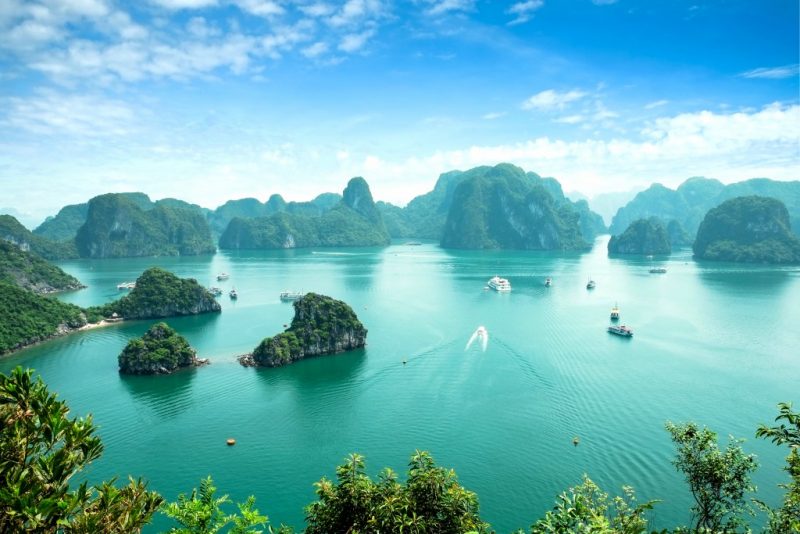
Travel tips and practical information to help you plan your backpacking trip to Vietnam…
A few years ago, I spent six weeks travelling around Vietnam – the “land of the ascending dragon”. I fell head over heels for this gorgeous, complex and fascinating country; the food, the coffee, the people, the weather, and the incredible scenery.
But travel there isn’t without difficulties, so I’ve answered a few of the more complicated questions for you below – including all about how to arrange a Vietnam visa on arrival. Need to know something I haven’t covered? No problem, just comment at the bottom of the post and I’ll get back to you.
READ MORE: How to Travel from Singapore to Vietnam Overland
When to go Backpacking in Vietnam
Vietnam has three different weather systems, so whatever time of year you visit you’ll probably experience rain and sunshine in equal measure. Below is a brief into to the seasons in each region. Wondering where to visit on your trip? Check out this awesome round up of the best Vietnam destinations from Getting Stamped for some ideas.
Mountainous Far North (Sapa): Rainy season from April to September, dry from October to late March. December and January can get very cold. Mist and light rain are common and unpredictable year-round, but trekking is generally always possible.
North Vietnam (Hanoi, Halong Bay, Ninh Binh): November to April (Winter) is cool but dry, while May to October (Summer) is hot and humid and the region experiences its highest rainfall. July to September are the wettest months.
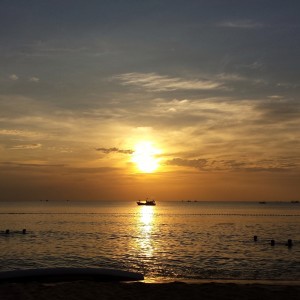
Central Vietnam (Hue, Hoi An, Danang): Mid January to late August the weather is hot and dry with temperatures reaching the mid 30s. October to November is typhoon season and sees a huge deal of rain.
South Vietnam (Ho Chi Minh, Mekong Delta, Phu Quoc): Temperatures remain relatively constant (and high) throughout the year. Dry season runs from November to April/May and the end of the season is slightly hotter and more humid. The rest of the year is rainy season, with June to August being the wettest months.
Top Tip! If you’re travelling to Hue, don’t miss the I Love Hue tour for the chance to meet one of my favourite people in the country. Read my review for more details.
Tet Festival
During the Vietnamese New Year’s festival of Tet, transport and hotels can be sold out weeks in advance, prices rise and it seems the whole country is on the move. The date varies depending on the lunar calendar but generally falls in February or the end of January, and is probably best avoided if you’re travelling on a budget.
Visas
All visitors to Vietnam, except holders of passports from member countries of the Association of Southeast Asian Nations (ASEAN), require a visa to enter the country.
Update 2024: Visitors from the UK (and some other countries) can now enter Vietnam for up to 45 days without a visa.
If you want to stay longer than 45 days, you can:
- book with a travel agent in Vietnam and ask them to apply for a visa pre-approval letter – your agent will tell you when to collect your visa from the embassy
- apply for other visa types from the Vietnamese Embassy in the UK
- apply for an e-visa that allows a 90-day stay and multiple entries
E-visas restrict you to the entry and exit points you select when you apply. If you get an e-visa while in Vietnam, you must exit the country and re-enter to start your e-visa.
Backpacking Vietnam Highlights
Food!
Be adventurous with Vietnamese food and try everything. The best way to discover is through a food tour. I loved the Hanoi Night Lights and Food Tour and the Hoi An Motorbike Food Tour was the perfect way to discover the cuisine of central Vietnam.
Plus find out more about Central Vietnam and what to eat there in this fabulous foodie guide from 2Foodtrippers!
Sapa
Hiking amongst the rice terraces of Sapa in the far north of Vietnam is a must for any nature-loving backpacker. Get to know the local culture with a homestay in a Hmong village.
Halong Bay
One of the biggest highlights of Vietnam is Halong Bay – a UNESCO World Heritage Site in the northeast of the country. Thousands of towering limestone islands are dotted around the emerald waters of the bay. And if you’re looking for the best party in Vietnam, you might just find it on a Castaway Island booze cruise!
Money Matters
The currency in Vietnam is Dong (VND). Visa cards are widely accepted and most ATMs offer free withdrawals – a few don’t, but the charge is rarely more than 30,000 VND (around 90p). Double-check the fees for using your card abroad with your bank before travelling, and consider taking out a prepaid travel card to save if you’ll be travelling long term. Get more Vietnam backpacking budget information in this fab travel guide from the Broke Backpacker.
FYI – you’ll need to have either US dollars or VND with you to pay the stamping fee at the airport if you’ve arranged a Vietnam visa on arrival. You need to order this in advance from most exchange bureaus, so order it ready to collect at your departure airport before flying to save time and hassle.
READ MORE: 20 Insanely Useful Backpacking Essentials
Tipping Guide
Generally, tips aren’t expected in Vietnam – but they will be appreciated, so if you enjoy a service do feel free to tip. Here’s a rough guide to help out…
- Hotels – Not expected, but you can leave a tip for cleaning staff if you want.
- Re
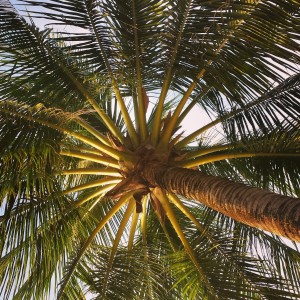 staurants – Not expected. In smart restaurants leave 5% to 10% if you’ve had good service, but bare in mind that locals don’t tip.
staurants – Not expected. In smart restaurants leave 5% to 10% if you’ve had good service, but bare in mind that locals don’t tip. - Guides – A few dollars per day will be appreciated.
- Taxis – Not necessary, but it is nice to round up or leave a little small change – particularly at night.
- Bars – Not expected.
What Kind of Travel Plug do I Need for Vietnam?
The most common electricity voltage is 220V, 50 cycles – although very rarely you may encounter 110V, also at 50 cycles, just to complicate matters. Plug types A, C and G are in use throughout the country but the most common is Type C – the European two-prong plug style. For flexibility, I recommend always travelling with the World Adapter with USB from SKROSS which includes multiple plug styles, making life much easier. Read my review of the plug for more information.
So there you have it! The most complicated part of preparing for a trip to the land of the ascending dragon is arranging the Vietnam visa – and even this is pretty straightforward if you go pay an agency to arrange a visa on arrival. Everything else is a simple matter of planning and packing – see my packing section for more help with that!
Got a question about travelling Vietnam? Comment here and I’ll be happy to help out!
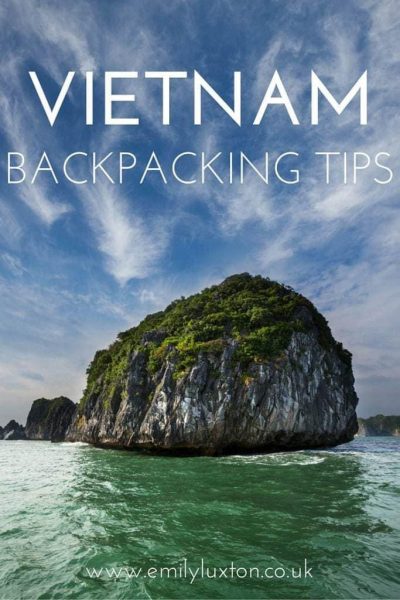
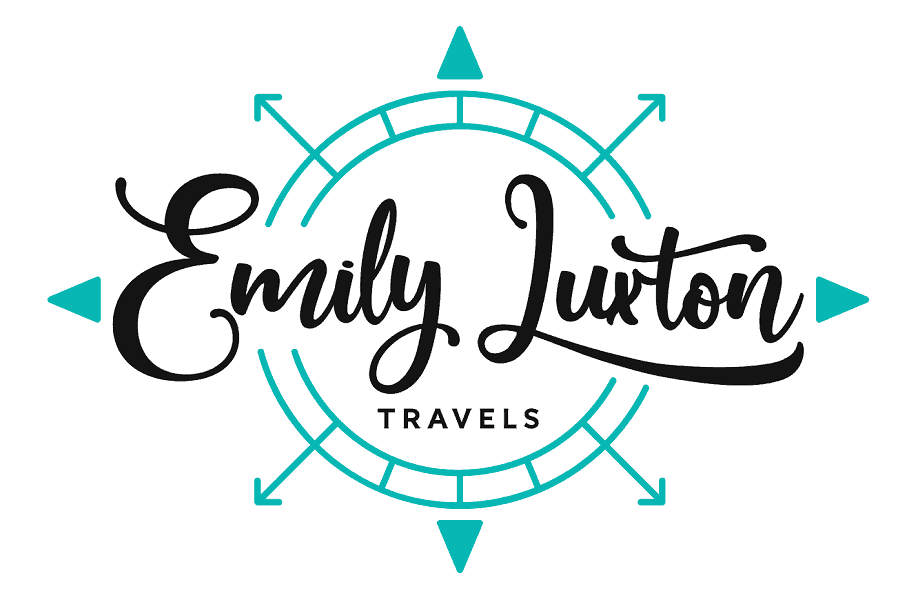
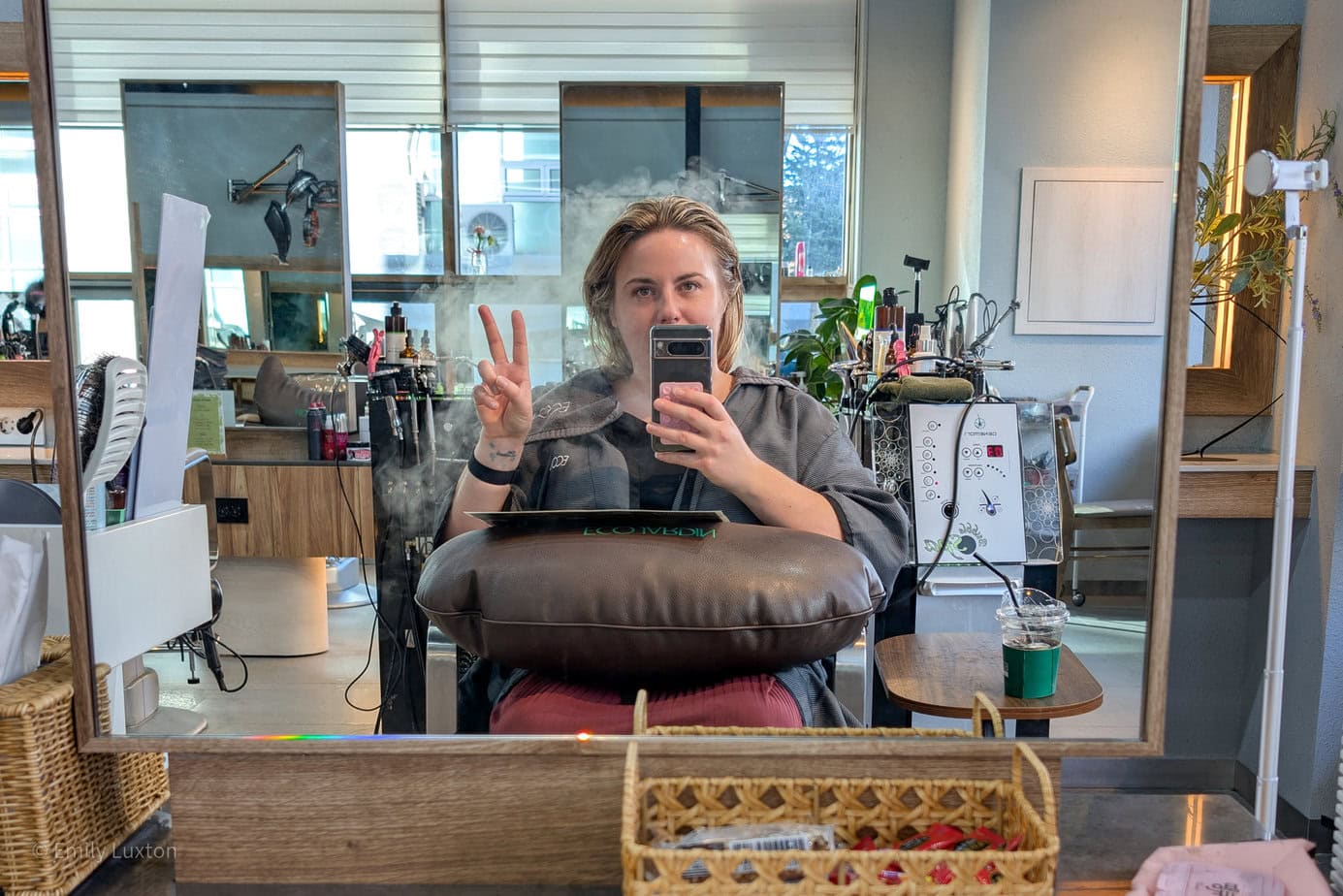
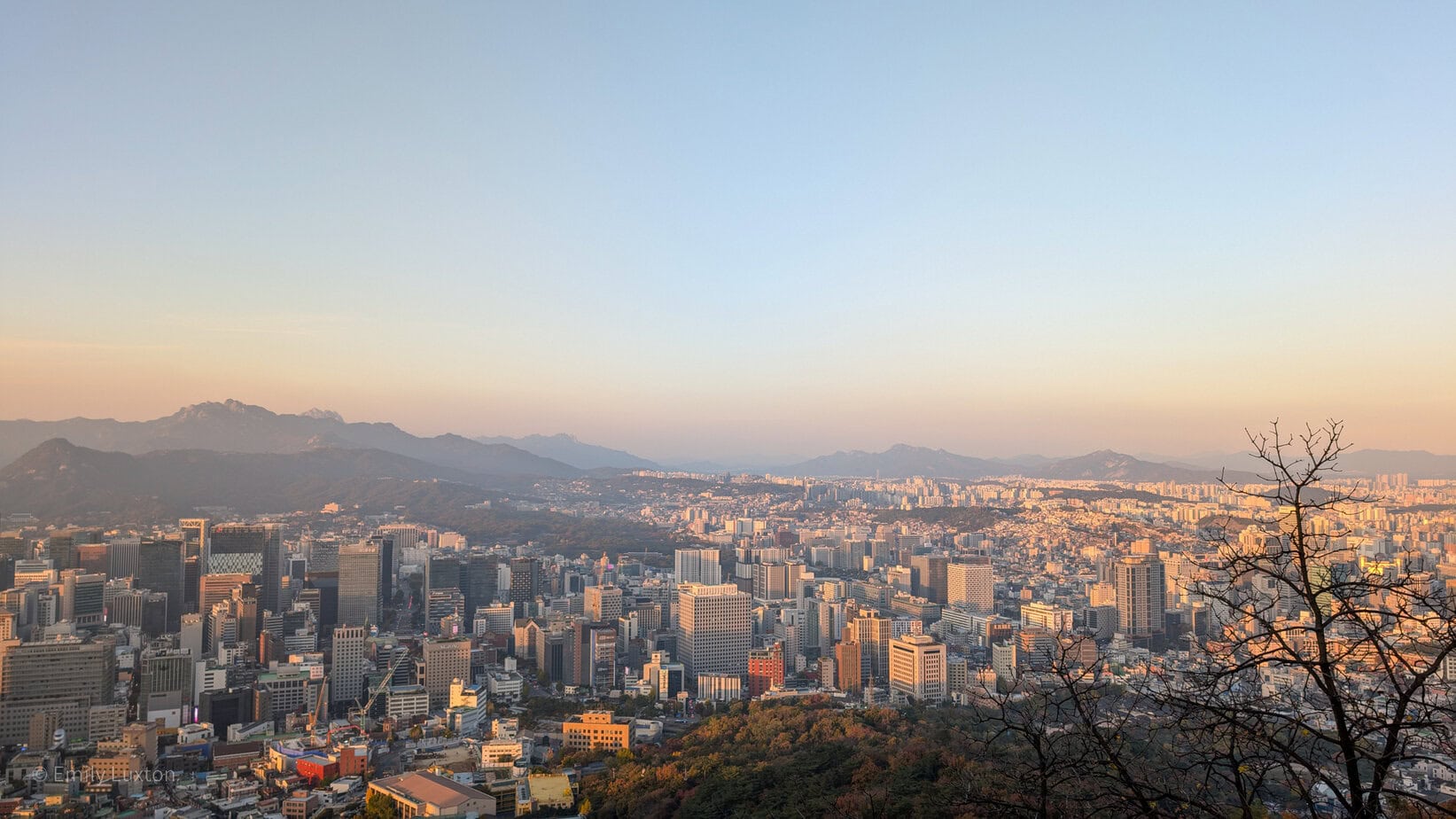

Great tips. I would add that traveling times between locations are much longer (busses and trains are slow) than what you’d expect. it’s important to factor that in, I think.
Really? I found that the trains generally ran on time when I took them. The only bus I took did take slightly longer than they said but I’ve generally come to expect that when I’m backpacking!! But I found the trains to be ok. Were they really behind schedule for you?
Would you recommend booking hostels in advance? Do you have a recommendation for a great stay on phu quoc which is not so touristy (not long beach)
Thanks for the great Tips!
Personally, I prefer to book hostels in advance always – its just so much easier to know you definitely have a bed and know where you’re going as soon as you get off the bus/train etc. Although I usually only book a day or two in advance – once I know where the next stop is. That way you still have the freedom to be flexible and change plans last minute.
On Phu Quoc I didn’t find as many hostels. As far as I know all the cheaper accommodation and dorms are around the Long Beach area (things might have changed since I was last there though). But even if you stay in Long Beach you can hire a moped cheaply and go find empty beaches elsewhere on the island. I did find a gorgeous eco resort called Bamboo Cottages in Duong Dong. That area and the beaches there are WAY quieter than Long Beach, it was gorgeous.
When are you off to Vietnam?
Lovely new hostel just opened in Dalat – beautiful city definitely worth a visit – it’s called Tree House Hostel. Would recommend it.
Great tip, thanks Helen! Are you in Vietnam at the moment?
Just returned from 3 weeks holiday out there. Amazing country & such lovely people. Can’t wait to return!
Me too – I love that country so much. Hoping to go back this year!
Super helpful, especially the bit about the visa’s. Thanks.
h awesome, I’m glad I could help :)
Thank you for your post! Really helpful!
Could you please tell me the name of the agency for “visa on arrival”? Thanks!
Thanks, so glad it helped! I used vietnamvisa.org and found the service to be very good, so I’d happily recommend them :)
Hi Emily, thank you for an interesting read. Vietnam has never really been on my radar, but after checking out your post, I might have to add it to my travel bucket list! Especially since I can stay for up to 15 days without a visa (I’m from the UK). :)
Ooh that’s awesome! Vietnam has long been one of my favourite countries – so many amazing things to see and do (and EAT!) there! I believe the visa-free period may now be longer than 15 days, too, but don’t quote me on that!